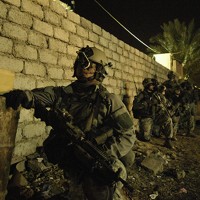In late-April, according to reporting by the New York Times, the U.S. Congress did something remarkable: It said no to U.S. Special Operations Command.
Asked by the command for new authorities to train security forces from Africa to the Middle East, a confused legislative branch, backed by the State Department and the rest of the U.S. military, denied the request. The request itself, though, reveals something of the ambitions harbored by the command. With its confidence boosted by operational successes and the esteem in which it is held, the command is marketing its units as the weapon of choice for U.S. policymakers trying to address America's varied national security challenges following the drawdowns in Iraq and Afghanistan.
In last week's column, I wrote the first part in a series exploring why the "special operationalization" of U.S. foreign policy carries more risk than either operators or legislators fully realize. In this column, I will explain why the U.S. Congress -- and the White House -- needs to continue to stand firm against the expansion of U.S. special operations authorities and missions.

